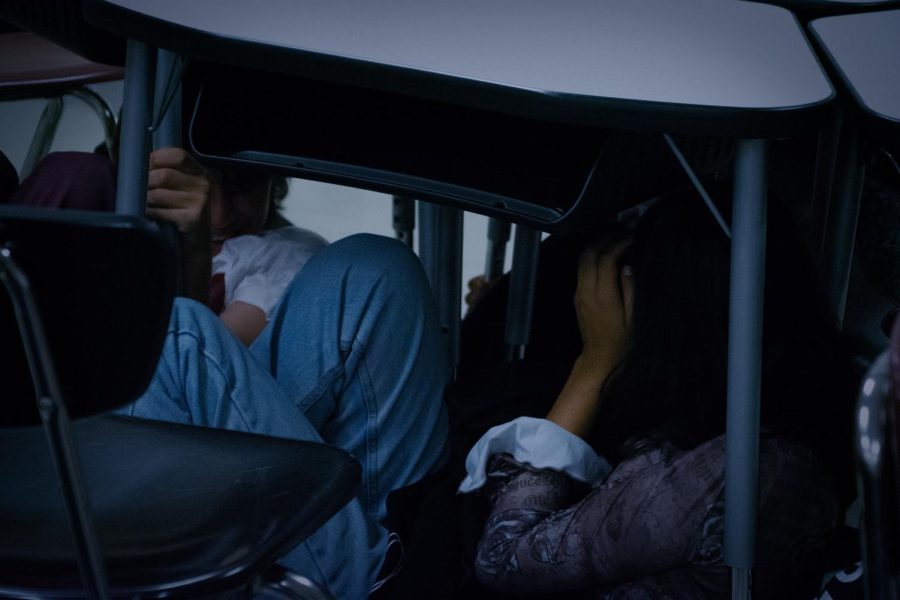Opinion: Lockdown drills should not be mandatory in schools
The importance of lockdown drills is clear, but their impact on the psychology and learning experience of students is also clearly harmful
We see kids across the country, and in CHS classrooms, hiding under desks during a lockdown drill. But do we see what impact this experience has on them and their ability to learn?
Violence, gunshots, alarms, running, and screaming. These are words often associated with school shootings. School shootings aren’t a common occurrence, but what happens when these ideas about violence are brought to light even if schools are just trying to keep the students safe?
Does teaching students about these drills help them? Or do these drills cause a chain of events that can lead to trauma or fear in these kids?
Lockdown drills are a state mandated requirement in which schools pretend there is an active threat and the school secures all the students and staff in the buildings to practice in case of a threat to occur.
However, the impact of lockdown drills do more harm than good and should no longer be required by law.
According to everytownresearch.org “Active shooter drills in schools are associated with increases in depression (39%), stress and anxiety (42%), and physiological health problems (23%) overall including children from as young as five years old up to high schoolers.”
These drills can be traumatizing for students of any age and can cause them to feel unsafe and anxious which isn’t something students should be feeling in a school especially the younger students in the elementary schools.
Many of the younger students in elementary schools don’t understand the concept of pretend and when these active shooter drills are implemented in schools, students can think it’s a real drill and be scared from the event.
The Lockdown drill law wasn’t put into effect until after the infamous Columbine shooting occurred on April 20, 1999.
There is also very little to no evidence supporting that these drills are actually effective in schools.
In the New York Times article ‘Whether it’s students or staff,’ Melissa Reeves, former president of the National Association of School Psychologists, suggested unannounced shooter drills can potentially “trigger past trauma or trigger a significant physiological reaction that ends up scaring the individuals instead of better preparing them to respond in these kinds of situations.”
These drills can also affect the attendance of students. When these drills occur it can cause students to not want to go to school because they now fear the very place they go to learn and feel at peace.
It may not seem like this hits close to home, but it does. Last November, as Colton High experienced a series of Instagram posts from an anonymous user threatening a school shooting on campus, attendance was dramatically affected. The Monday after the first threat, 60% of the student body stayed home. And the long term impact of that fear recently led to a stressful situation when, after a mistake was made with the intercom phone during morning announcements, a lockdown drill was triggered. The mistake was quickly corrected, thankfully, but that didn’t necessarily help those students who suddenly experienced PTSD or intense anxiety.
School should be seen as a safe haven for students and as an escape from their own personal things going on at home, but with these drills put in place it takes away one of the only places a child can feel safe at.
Recently, the CHS Publications Department experienced a major theft as over $20,000 in photography equipment was stolen from our studio over Spring Break. This included all cameras. Any amount you donate will help rebuild our program. Thank you!

Daphne Marquez is currently a junior at Colton High School. This is her third year on the Pepper Bough staff, and her first as Editor-in-Chief.




